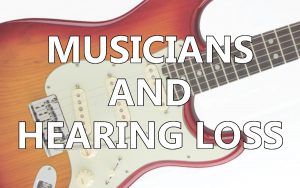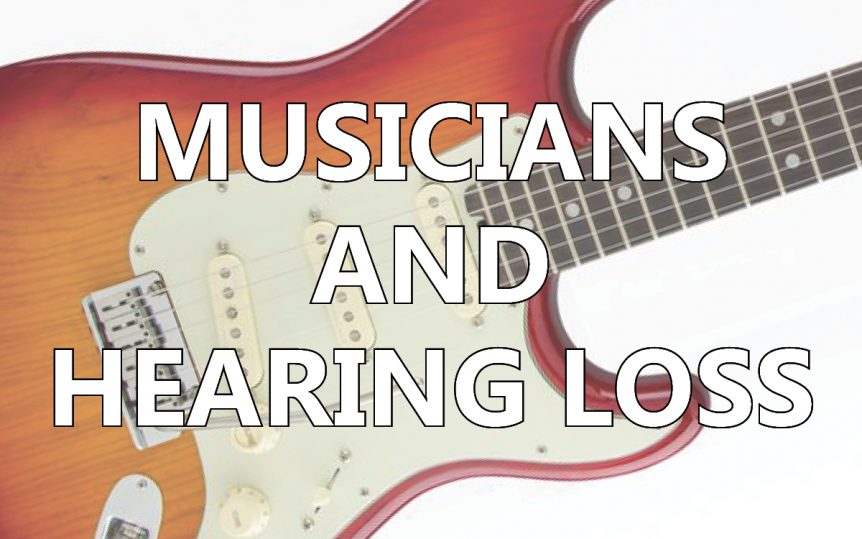
Musicians are at a higher risk for hearing loss and tinnitus than their non-musical counterparts.
Eric Clapton recently announced what could be described as every musician’s nightmare: he is experiencing hearing loss, along with persistent ringing in the ears (tinnitus). The 72 year old musician explained that he’s going deaf, and the realities associated with hearing loss are making him anxious about his performance schedule this year. Long considered one of the top guitarist in the world, the British musician expressed concern with his ability to sing and play the guitar for his upcoming shows.
Why Musicians Suffer from Hearing Loss and Tinnitus
Because of exposure over long periods of time to high decibel volume ranges, many professional musicians experience some degree of hearing loss as they age. Additionally, this sound exposure can also cause tinnitus, or ringing in the ears, as well as high pitch perception issues.
Though many musicians wear protective in-ear monitors or musicians’ ear plugs, this type of technology was not readily available to many musicians decades ago. Additionally, musicians do not always elect to wear this type of ear protection during practice sessions.
The risk of hearing loss for musicians is much higher than their non-musical peers. Noise-induced hearing loss is irreversible, but musicians can prevent further loss by addressing their issues head on. Most musicians, however, do not admit to issues such as hearing loss or tinnitus. These hearing health dilemmas pose unique obstacles for musicians. Moreover, hearing loss and tinnitus can hinder musicians from being able to pursue their passions as they age.
Confronting Tinnitus and Hearing Loss
So, what exactly can musicians who experience this type of hearing loss or tinnitus do to confront their health issues? First, and perhaps most importantly, musicians must recognize and admit their hearing loss. Based on currently available data, most people do not admit and subsequently confront their hearing loss right away. Failure to admit hearing loss leads to further, irreversible issues.
Next, musicians experiencing hearing loss or tinnitus should schedule an appointment immediately with an audiologist for a comprehensive hearing exam. An audiologist will be able to confirm hearing loss, oversee tinnitus treatment, and provide unique, custom options for hearing devices.
What Do YOU Love to Do?
Think about what you really love to do. What are you passionate about? What defines you? Now, imagine if you could not do the ONE thing you really love. How would your life change? What would happen to your overall outlook, mood, and attitudes about living out your days?
These are the types of questions musicians wrestle with when confronted with the life-changing health issue of hearing loss. These are the questions Eric Clapton is currently asking himself.
Protect Your Lifestyle and Relationships
Though you may not be a professional musician, protecting your hearing health care means protecting both your lifestyle and your relationships. Being able to hear is vital for positive relationships and participation in so many important activities.
And, who doesn’t want to protect those things that are most valuable and essential in life? Schedule your annual hearing health care consultation. Get a FREE Hearing Test TODAY! Don’t hesitate — give us a call to schedule your appointment. We would love to get to know you, find out what you are most passionate about, and help you preserve what’s most dear about your life.

